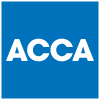With most of the working population working from home right now, many businesses are considering a permanent change to their working environment and we are being regularly asked about the pros and cons of a garden office.
There are two main considerations when looking at installing a garden office on the grounds of your residential property for business use:
- will it be solely used by the business or
- will there also be an element of private use (e.g. as a playroom, hobby room or overnight accommodation for guests).
The treatment of the garden office costs, various tax implications and some other additional points hinge on which of those options is chosen. Each individual circumstance may be slightly different, so it’s always good to seek specific advice but the following table outlines the broad considerations, based on a Limited Company purchasing the garden office as a company asset.
Initial Purchase of structure
The structure will be an asset of the company but no tax deduction is available for cost of the structure itself.
It is possible to claim capital allowances on certain elements such as power supply, heating and thermal insulation as well as fixtures and fittings. It is a good idea to obtain breakdown of the cost of these allowance items.
VAT
If VAT registered you will be able to reclaim the VAT on the cost of the structure and items mentioned above. If there is private use of the office then an appropriate apportionment should be made.
Running Costs
These can be claimed as tax deductible, again an appropriate restriction must be made for any private usage.
Capital Gains Tax (CGT)
Ordinarily, the disposal of a primary residence is exempt from CGT. If the office is used solely for business then this element of the property may become liable to CGT.
This is not an issue of there is some private use of the office.
Benefit in Kind
If there is private use of the office then an annual benefit in kind charge will occur. This is calculated by using the assets made available for private use rules and could be as high as 20% of the purchase price per annum.





